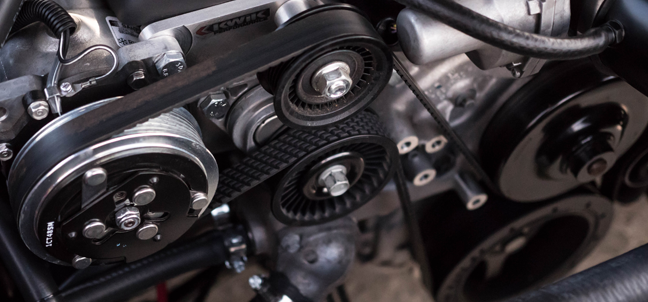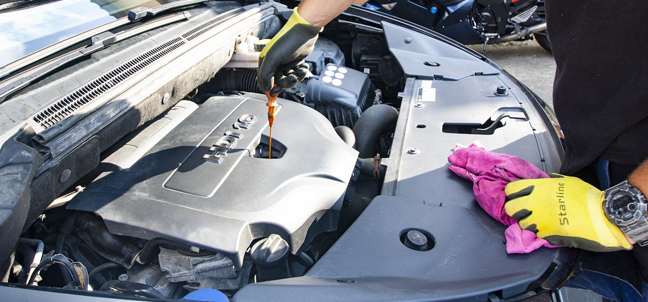We’re here to look at the fuel efficiencies of different kinds of engines available on the market and see how they compare. Now there are more options than ever before when it comes to what powers your vehicle, it’s important to consider what they’ll cost us in the long run.
Petrol vs Diesel
This argument is probably the most familiar one to all of us: the choice between a ‘sleek’ petrol car or a ‘tractor-sounding’ diesel machine. There’s not much between the two fuels’ prices at the pumps, with only a few pence separating them, so it comes down to other factors.
One thing to note is the size of the engines themselves: petrol engines can be as small as one litre in size, while diesels start at a slightly larger two. Smaller engines mean smaller cars, which also mean a greater range. These smaller vehicles make great (and cheap) city runarounds, like the Seat Ibiza, which can get around 53 miles per gallon in town traffic.
According to the hard numbers, however, the old adage holds true; diesel engines offer better efficiency than petrol. In every situation – especially on motorways – diesel offers up to 4 more miles per gallon of fuel over petrol, making cars like the Audi A3 great for those regularly going up and down the country. That’s the end of that, right? Of course not.
Reliability has to be taken into account, too. After all, a car’s not very efficient if it’s brought to a standstill. This is where diesel cars trip up, as their engines compress fuel at high pressures within them, meaning they’re three times more likely to break down than petrol engines, and cost 20% more to repair. A diesel car’s particulate filter can also get clogged after extended periods of urban driving, making them less than ideal city cars.
So petrol win on reliability, but the raw numbers favour diesel, although there is another type of engine that trumps both.

Hybrid Engines
Combining petrol and electric engines, hybrids famously outperform their mono-fuelled competitors. Using electric propulsion at low speeds, they’re especially efficient in stop-start and urban traffic, with cars like the Hyundai Ioniq getting more than 60 miles per gallon. The difference isn’t as pronounced on the motorway, but many of us will spend more time in towns than the open road.
It gets better: according to a Which? Survey, Hybrid cars are even more reliable than petrol engines and, since they use petrol, consume the cheapest out of the two fuel types, adding to the savings. The cherry on top of all of this is the fact that they produce less CO2 than other types of internal combustion engines. These facts make them easy to recommend, especially since every new petrol car in the UK will eventually be a hybrid by 2030.
Hybrid engines come in a range of different types. There’s three main ones you’ll encounter.
Full Hybrids are what people think of when mentioning these cars; a petrol car that charges large electric batteries and uses them to power the car at lower speeds. The Toyota Prius popularised this set up around the world, touting excellent range on a single tank of fuel and positioning itself as an eco-friendly vehicle.
Plug-in Hybrid Electric Vehicle (PHEV) take this a step further, using much larger batteries to carry cars further electrically. These need charging to maintain their high fuel efficiency (using the same network as electric vehicles) but they can travel much further without burning petrol; The Hyundai Tucson can squeeze an extra 30 miles of range when fully-charged, with the engines and regenerative braking adding extra juice to the batteries.
Alongside these two there are Mild Hybrids, which are similar to full hybrids but the electric engines only supplement the petrol engine, not having enough power to move the car on their own. Interestingly, these are the only hybrid cars that can have manual gearboxes, since others require automatic drives.

What About Electric Vehicles?
Simply put, electric vehicles (EVs) are cheaper to run then all of the above. On average, EVs cost half as much per mile and have much more reliable engines because there’s simply less parts to break. This is on top of their quieter driving experience and the fact that they’re the only truly emissions-free engine on this list. On of the biggest barriers many have is “range anxiety,” but modern EVs can travel hundreds miles before needing a charge. The electric version of the Hyundai Ioniq 5 hatchback can be fitted with a 73kWh battery, giving it a 260-mile range – the distance from London to Blackpool.
The problem is that, as of now, they have a higher up-front cost and the current charging infrastructure is having to keep up with an influx of new owners. At least for the price, there are Government grants and of course Motor Source Group discounts for NARPO members to help.
One of the most popular cars in the UK – the Vauxhall Corsa – has a number of EV trims that can help you make the switch, with a saving up to £5,500 with Motor Source Group too!